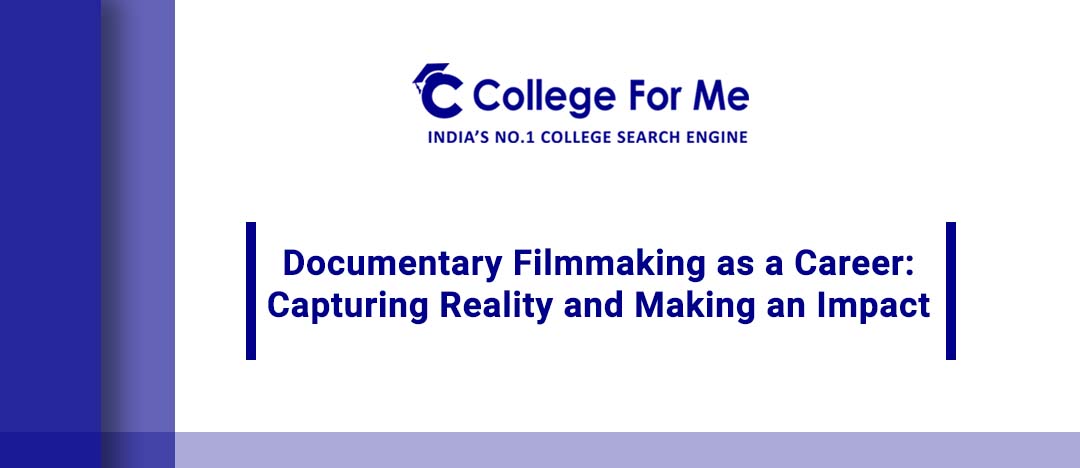Career Scopes Of A B.Tech. Student
There is a high demand for B.Tech. degree holders in the private sector, yet, there is also the opti...

Documentary filmmaking is a captivating and impactful medium that allows you to tell real-life stories, shed light on important issues, and inspire change. If you have a passion for storytelling, a curiosity about the world, and a desire to make a difference, a career in documentary filmmaking might be the perfect path for you. In this blog post, we'll explore the exciting world of documentary filmmaking as a potential career choice for students.
What Is Documentary Filmmaking?
Documentary filmmaking involves the creation of non-fiction films that explore and depict real-life subjects, events, or issues. Unlike fictional films, documentaries aim to capture reality, present facts, and provide insight into various aspects of the world we live in. They can cover a wide range of topics, from social and environmental issues to historical events and personal stories.
Why Choose a Career in Documentary Filmmaking?
Steps to Pursue a Career in Documentary Filmmaking:
Career Paths in Documentary Filmmaking:
Challenges in Documentary Filmmaking:
Documentary filmmaking offers a rewarding career path for students who are passionate about storytelling and making a positive impact on the world. It combines creativity, exploration, and social consciousness, allowing you to bring important stories to light and connect with audiences on a profound level. If you're ready to embark on this journey, start by developing your skills, building your portfolio, and networking within the industry. Your documentaries could be the catalyst for change and inspire viewers to see the world in a new light.

There is a high demand for B.Tech. degree holders in the private sector, yet, there is also the opti...

If you are looking for a bright and prospective career, then getting a B.Tech. in CSE must be under ...
Comments (0)